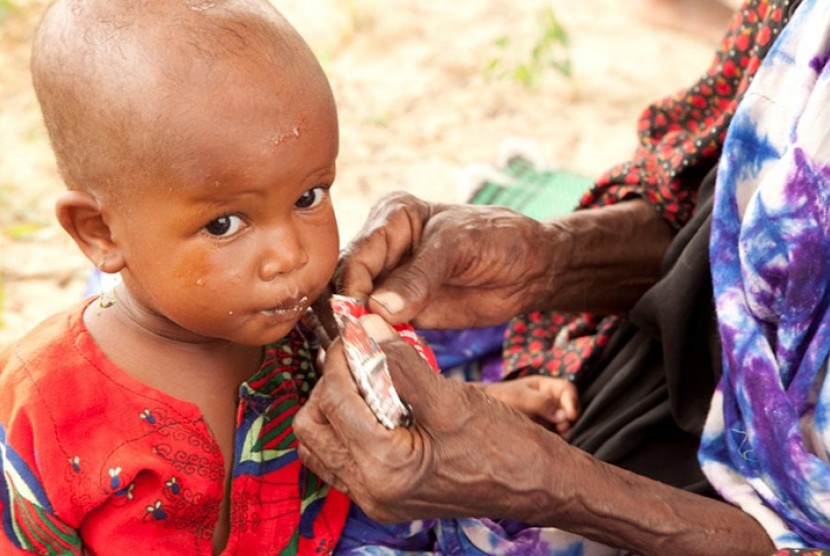REPUBLIKA.CO.ID, JAKARTA -- Southeast Asian Ministers of Education Organization, Regional Centre for Food and Nutrition (SEAMEO REFCON) noted one of three children under 5 years of age in Indonesia and some countries in Southeast Asia suffered from stunting. It happened as result of inadequate access to diverse and nutricious food.
Deputy Director Agus Haryanto of SEAMEO REFCON said leadership in food and nutrition played an important role in helping to reinforce action on nutrition in countries experiencing a high burden of childhood malnutrition.
According to Agus, individuals from various sector with good knowledge on nutrition and capacity to influence food and nutrition policies and their implementation are urgently needed.
"We need to have Nutrition Movers, a new critical mass of leaders in the field of nutrition who have vision, integrity, confidence and capacity to ignite action for change, and who are well-informed with the current situation and can stimulate partnerships with other leaders to achieve the goals of nutrition improvement in the region," stated Agus in a press release received by Republika.co.id (August 8).
SEAMEO REFCON with the support from Ministry of Education Republic of Indonesia, the United Nations Food and Agricultural Organization (FAO), International Life Sciences Institute (ILSI) Southeast Asia and other institutions from the region have conducted the 12th South East Asian Nutrition Leadership Program (SEANLP) to empower nutritionists and other professionals to gain competencies in effective leadership skills, communication, and decision making processes.
Since 2002, the program has successfully carried out 11 Leadership Programmes and with a total of 254 alumni from various countries and institutions in the SEA region and beyond. Some SEANLP alumni hold strategic positions in their country, and lead nutrition development programmes.
This year, the SEANLP has brought 28 participants from 10 ASEAN countries. The programme runs from 4-8 August in Jakarta with this years theme of SEANLP towards achieving SDG 2 through nutrition-sensitive agriculture and food system approaches.
Malnutrition in Southeast Asia is influenced not only by peoples health status, but also by insufficient access to safe and nutritious food, especially during severe weather-related events, such as floods and other natural disasters. Therefore, to end hunger, food insecurity and malnutrition, our efforts should not only be nutrition-specific, but also nutrition-sensitive.
In the past, there has been limited capacity to design nutrition-sensitive food and agriculture policies and action programmes.
To address this need, FAO has developed a tool kit with 6 packages of nutrition-sensitive learning materials complemented by interactive e-learning modules. These can be used as guidelines for development partners and policy makers.
The tool kit provides a list of food system-based intervention options that have great potential to improve nutrition and a set of very concrete entry points for maximizing the impact of each of these interventions.
It provides recommendations on how to select the most appropriate action, according to various economic and social contexts. It also provides methodological information on currently available indicators that may be relevant for the monitoring and evaluation of nutrition-sensitive investments.
Political leadership and commitment to ensure that a food system is nutrition-sensitive is a must to overcome nutrition problems in any country, not only by the government, but also by representatives from private sector, the media and others.
"Government programmes in health, agriculture, education, infrastructure and industry must be developed on a platform that is able to answer to nutrition problems," stated FAO Representative to Indonesia and Timor-Leste, Mr. Mark Smulders
SDG2 addresses the need to end hunger, to achieve food security and improve nutrition, with tough targets set for Member States to make important progress by 2030.Stronger local, national and regional leadership is needed to end hunger and all forms of malnutrition, added Mark.



